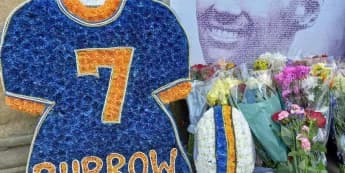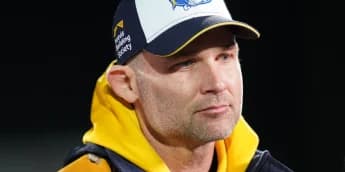Wales suffers its heaviest home defeat to South Africa, marking a 12th consecutive loss. As pressure mounts on the Welsh Rugby Union, key reviews will shape the future of a struggling team.
Another week has brought another devastating defeat for Wales. The Principality Stadium witnessed a relentless South African team that dealt Wales their largest home defeat ever against the Springboks, an astonishing loss by 33 points. This represents Wales' 12th straight defeat, concluding a bleak year in which achieving a victory has been painfully elusive. With the Six Nations approaching, the Welsh Rugby Union (WRU) is under significant pressure as it starts an end-of-series review, this time involving external experts to thoroughly analyze the team’s challenges.
Terry Cobner, President of the WRU, provided a grim yet honest evaluation in the match program, stating, 'We can’t question the players’ dedication, but right now, we are simply not performing at the required level.' While the players' commitment is clear, the disparity in performance is indisputable. Cobner's urging to 'continue working hard' is essential, yet it resonates like a hollow echo in an empty space following yet another historic defeat.
The match presented a contradictory blend of determination and defeatism. Although Wales was clearly outplayed, they exhibited notable defensive resilience, managing to stop South Africa from easily increasing their score. Late tries in each half provided some relief for the home side. Nonetheless, the stark reality is that this was probably the best performance Wales could achieve against a Springbok team that scarcely hit their stride. This situation starkly contrasts with the successful era under Warren Gatland, during which Wales enjoyed a strong record of five victories out of six matches against the same rivals.
The South African team quickly established their authority on the match. Franco Mostert and Eben Etzebeth each scored rapid tries, showcasing surprisingly agile performances for their tall stature. Cheslin Kolbe and Kurt-Lee Arendse initiated the first attacking moves, while the Welsh defense faltered under intense pressure. By the 10th minute, South Africa was ahead 12-0, creating the impression that the game was more akin to a practice session.
Wales' fleeting moments of resistance—like Jac Morgan preventing Siya Kolisi from scoring—were overshadowed by the South African side's offensive prowess. Arendse proved to be a continual threat on the wing, managing to score one try and almost creating another, as Welsh efforts provided a brief reprieve from further embarrassment. Even after Kolisi's try was ruled out due to a knock-on, the Springboks swiftly regrouped, with Elrigh Louw powering through moments later.
The Welsh supporters, accompanied by a significant number of traveling Springbok fans, transformed their cheers into groans as the match progressed. Their only moment of celebration in the first half was when Rio Dyer touched down following a determined maul within South Africa's 22. In the second half, there was little relief for Wales as South Africa continued to dominate, despite some occasional handling mistakes. Tries from Aphelele Fassi and Gerhard Steenekamp confirmed the defeat, while Wales' late try from James Botham barely served as a consolation.
Injuries added to the woes of the Welsh team. Gareth Thomas and Tom Rogers, who were crucial to the lineup last week, had to withdraw late due to illness and injury, necessitating unexpected changes. Their substitutes, Nicky Smith and Josh Hathaway, put in considerable effort, but they were unable to establish the necessary teamwork to compete against a team of South Africa’s quality. With the Six Nations opener against France looming in less than two months, Wales is faced with
The WRU's report, anticipated by Christmas, will probably echo what fans and analysts already recognize: drastic changes are essential. The team's resilience is commendable, but without substantial tactical and structural modifications, the spring is likely to yield more of the same. For Gatland, the former esteemed architect of Welsh rugby's golden age, time is of the essence. Wales has navigated through challenges before, but this current phase ominously resembles the quiet before a potentially greater storm.







